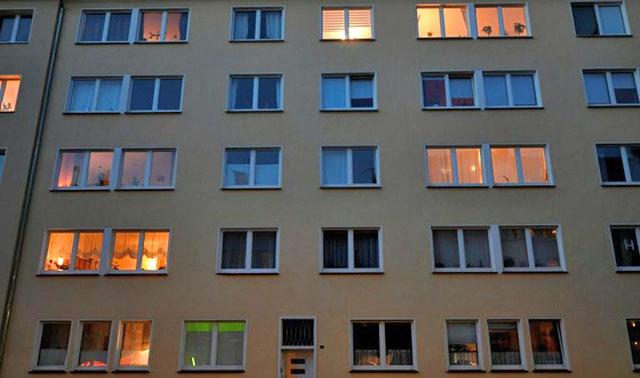You are here
Experts urge people to be more empathetic, patient to minimise domestic violence incidents
By Rana Husseini - Apr 25,2020 - Last updated at Apr 25,2020

Health experts and activists called on people to be more empathetic and patient by adjusting to the current lockdown situation to minimise domestic violence incidents in Jordan (AFP photo)
AMMAN – Health experts and activists called on people to be more empathetic and patient by adjusting to the current lockdown situation to minimise domestic violence incidents in Jordan.
The calls were made during a virtual lecture that was organised recently by Solidarity Is Global Institute (SIGI) titled “Domestic Violence during Coronavirus Times”.
Family Affairs Consultant Abeer Bani Taha, who works in Irbid, said she had to deal with several domestic violence incidents during the COVID-19 lockdown that was announced by the government on March 21.
“It is clear that people are becoming more and more pressured during the lockdown and I had to deal with many cases, including a case of a married couples of over 21 years,” Bani Taha said.
She added that the husband became verbally violent and “used insulting and demeaning language against his wife and he had to leave the house”.
“I believe they both have poor communication skills that ended up in the separation because the husband used insulting words and the wife was surprised with the new insulting words used by the husband,” Bani Taha said.
That is why, Bani Taha added, couples need to work on their strong communication skills and address all their problems on the spot so that “it would not pile up and lead to more problems”.
“People need to be more patient with each other and to strengthen their communication so that they understand each other because this is a global problem,” she added.
SIGI President Inam Asha said during the lecture that “this time is good for the family to bond and revise their relationship and spend more time with each other”.
“Some people do not know how to deal with the current and sudden crisis and end up practising violence on their partners,” Asha said.
Meanwhile, Psychiatrist Laith Abbadi pointed out that there are “gradual steps that violent individuals could adopt to prevent themselves from practising violence on others”.
“These individuals could practise, such as training themselves on small incidents that could drive them to become angry and to train themselves to hold themselves from being violent,” Abbadi said.
He added that another option is for people “who know they are violent and cannot control themselves, they can seek therapy and help”.
“People also could release tension by sleeping well, eating well, exercising sports, yoga and breathing and resorting to religious and literature readings,” according to Abbadi.
SIGI Executive Director Asma Khader also spoke during the lecture stressing the need to “say no to violence regardless of the reasons”.
“We should not put any justifications to accept violence. On the contrary. It should be totally rejected and we need to spread awareness about the consequences that could affect the entire family,” Khader stressed.
Khader added that “instead, we need to understand the reasons behind violence incidents and help individuals in need and that is why we established a programme at SIGI called ‘Reconciliation’, to help follow up on domestic incident cases and help both parties involved”.
Related Articles
AMMAN — Health experts and activists called on people to be more empathetic and patient by adjusting to the current lockdown situation to mi
AMMAN — Activists and experts warned of the lack of official reports that explain the social impact of the COVID-19 crisis on family stabili
AMMAN — A local organisation on Sunday called on the government to take swift and strict measures to protect victims of domestic violence.In















